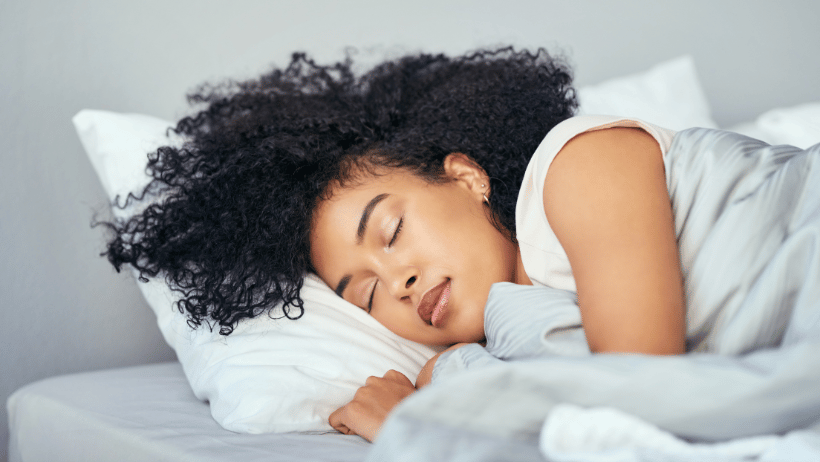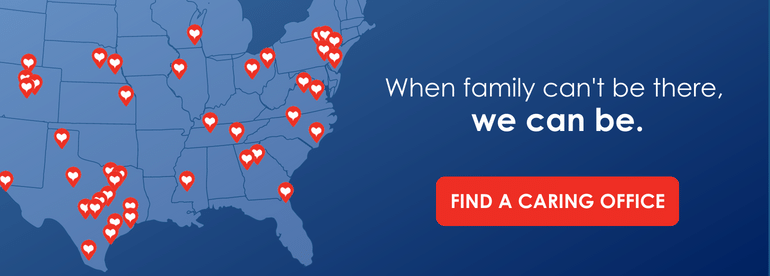From sleep apnea to insomnia to our busy brains overthinking, it can be hard to get a good night’s sleep these days. To help you get into some good habits and work on your sleep hygiene, here are 6 simple and easy things you can try.
Why Is Sleep Important?
There is a reason we're supposed to spend a third of our lives sleeping. Enjoying 8 hours of sleep per night allows our bodies to cycle through the sleep stages and perform essential restorative and healing tasks such as cell and muscle repair, memory and new skills processing, hormone regulation, and more.
Our sleep requirements change as we age, with children needing an average of 12 hours of rest to help their bodies cope and manage all their physiological changes. Adults need at least 7, but we don’t always get that.
Seniors often don’t sleep well for several reasons, including:
- Medication
- A lack of exercise
- Conditions such as sleep apnoea or restless leg syndrome
- Incontinence
- Chronic health conditions
And that’s just the beginning of the list of reasons why we don’t sleep well.
Whatever the reason, lack of sleep can result in feeling grumpy or low energy; we can be more stressed, and our performance in physical and mental activities can suffer. However, a few small changes to your sleep hygiene and routine could make a world of difference, so here are a few tips for you to try.
6 Tips to Get Better Sleep
1. Get active and outdoors
Our bodies have a natural circadian rhythm to help manage our sleep-wake cycles. If this is disturbed, you can experience insomnia and sleep issues. This rhythm is largely informed by our exposure to light. So, getting out and about or exercising in the sunshine can help your body judge when to wake up and when to get sleepy.
There are loads of low-impact ways to enjoy sunlight and blue skies, like gardening or enjoying breakfast and lunch outside or in front of a window. Here are a few more ideas for outside activities.
2. Avoid caffeine
We all know to avoid caffeine-rich drinks like coffee and fizzy drinks before bed, but how long before bed do you stop? Research suggests you should steer clear for at least 6 hours before you want to sleep. So try switching to decaf or just water instead.
It’s also worth noting that caffeinated drinks are not all that hydrating and can make your kidneys work harder overall, so it may be worth steering clear of caffeine altogether.
3. Stress less
As well as affecting our memories, wearing us out, and causing physical issues, stress makes falling asleep an absolute trial. Our thoughts race, we worry about unnecessary things, and we can’t relax.
Tackling stress is not all that easy, but there are techniques you can try to manage it, such as journaling your thoughts and feelings before bed to clear your mind or trying natural essential oils and scents to relax you while you drink chamomile tea.
RELATED CONTENT: Caregiver Stress Fact Sheet
4. Avoid tech before bed
Did you know that screens on TVs, computers, iPads, and phones can emit something called blue light? This light is one of many that makes up the sun’s rays, and therein lies the issue. Blue light from screens can impact your circadian rhythm and make your brain and melatonin producers think it’s still daytime.
Try to avoid using any devices for several hours before bed — 3 hours at a minimum — or use the night-time screen settings in your device. Of course, you could always pick up a book or do some puzzles instead.
5. Assess your sleep hygiene
Sleep hygiene is the environment that makes up your bedroom — think of the room temperature, bedding, smells, sights and more. Giving your room a seasonal assessment is a great way to ensure your space is optimized for good sleep:
- Check the room temperature: 65 Fahrenheit or 18 Celsius is recommended.
- Check your bedding: Make sure your pillows are supportive, your duvet isn’t too thick, and your mattress has no lumps, dips or bumps. Consider an adjustable bed if you have any medical conditions.
- Check your curtains: Are they sufficiently blocking light?
- Check the smell: Unscented spaces or ones using calming smells, like lavender, are helpful for sleep.
- Check the noise: If you live near a busy road, consider earplugs or try a white noise machine.
6. Get into a healthy routine
It’s almost impossible to catch up if you have sleep debt from not getting enough rest. The best thing to do is prevent it in the first place with a healthy nightly routine.
After reducing your blue light exposure, you should try calming low-lit activities for at least 30 minutes before bedtime and be consistent with when you actually go to bed and turn out the light. The same goes for when you wake up — try and make it the same time every day.
Once your routine is set, you can try to recover your sleep debt by adding on an extra 15–30 minutes of sleep per day until you wake up feeling fully refreshed.
These are just a few simple things that might improve your sleep, but what works for one may not work for all, so give some a try and find the right methods and ideas for yourself.


